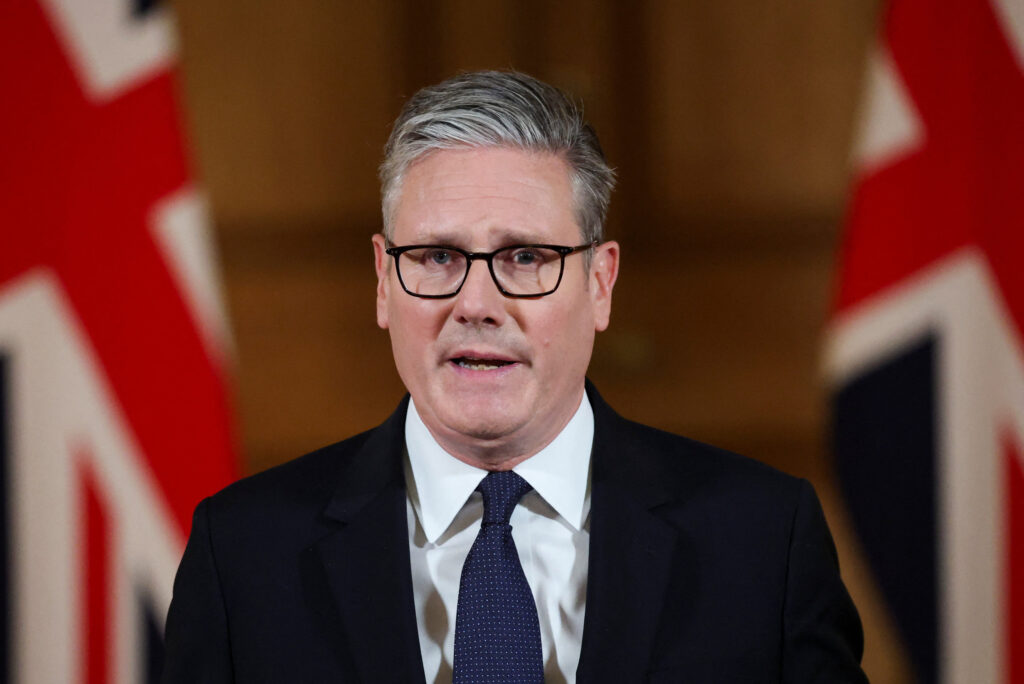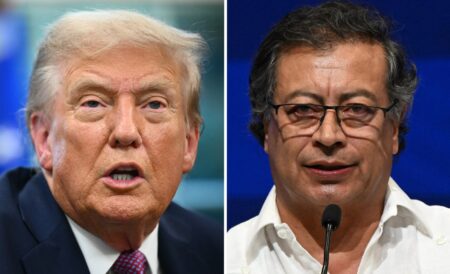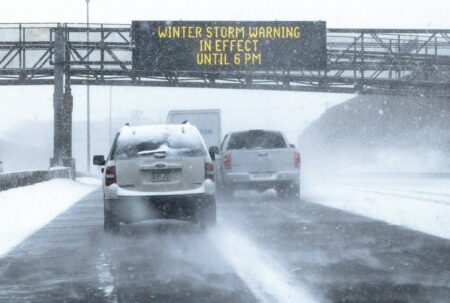British Prime Minister Keir Starmer announced on Sunday afternoon that his country has recognized a Palestinian state. At the same time, the leaders of Canada and Australia also made their own formal declarations recognizing Palestinian statehood.
The move follows a global outcry against Israel’s escalation of its offensive in Gaza, which has left large numbers of Palestinians starving and generally dire humanitarian conditions.
“In the face of the growing horrors in the Middle East we are acting to keep alive the possibility of peace and a two-state solution,” Starmer said on Sunday, announcing the historic move. “That means a safe and secure Israel, alongside a viable Palestinian state. At the moment we have neither.”
Back in July Starmer said the U.K. would recognize a Palestinian state unless Israel met certain conditions, setting a deadline of this week’s meeting of the U.N. General Assembly. Those included agreeing to a ceasefire, allowing the U.N. to re-start its supply of aid to Gaza, and committing to long-term sustainable peace in the region “reviving the prospect” of a two-state solution.
A landmark inquiry by the United Nations released earlier this month found that Israel is committing genocide in the Gaza Strip, including by killing, causing serious bodily or mental harm to Palestinians; deliberately inflicting conditions of life calculated to bring about the destruction of the Palestinians in whole or in part; and imposing measures intended to prevent births.
How Did We Get Here?
A two-state solution refers to the creation of a Palestinian state in the West Bank and Gaza Strip with East Jerusalem as its capital as a way of ending the decades long Israeli-Palestinian conflict. The Palestinian state would coexist with the Israeli state, sharing part of the same land. At the moment, a Palestinian state does not exist, there is only the state of Israel.
The U.K. has played a special role in the history of the current conflict. Palestine, part of the Ottoman Empire, was run by the British after World War I, who supported of the creation of a Jewish state. In 1917, the British government issued a statement, known as the Balfour Declaration, expressing support for the establishment of a “national home for the Jewish people” in Palestine.
In 1937, after years of strikes and riots in the region, the U.K. produced its first plan to split Palestine into two states—a Jewish one in the north and an Arab one in the south. Palestinians rejected the plans, which would have involved a mass population transfer.
After World War II, however, calls for the creation of a Jewish state intensified. The newly formed U.N. came up with a plan to split Palestine into two states. Despite Palestinians’ opposition, the plan passed with 33 nations voting in favor, 20 against, and 13 abstaining. The U.K. was among the latter.
The state of Israel declared independence on May 14, 1948, shortly before being attacked by the armies of Egypt, Syria, Iraq and Lebanon. Israel triumphed and captured some territory. Other wars followed, changing the map—including the Six Day War in 1967.
A solid effort in the direction of a two state solution, backed by international forces, was ongoing in the 1990s, but died with the assassination of then-Israeli Prime Minister Yitzhak Rabin in 1995 at the hands of an Israeli religious extremist. Rabin’s death was followed by a series of attacks by Hamas against Israel.
The Israeli government, led by Prime Minister Benjamin Netanyahu, strongly opposes the idea of a two-state solution.
Why Declare for Palestinian Statehood Now?
Starmer said back in July that, with the prospect of a two-state solution put at risk by the conflict that followed Hamas’ October 7, 2023 attacks on Israel, “this is the moment to act.”
Israel has recently announced that it will use “unprecedented force” on Gaza City and will accelerate Israeli settlements in the West Bank, raising fears among international observers that the prospect of a Palestinian state may be further eroded, if not disappear.
“A ceasefire at this point lies in tatters,” British Deputy Prime Minister David Lammy, representing the U.K. at the U.N. General Assembly, told Sky News this weekend.
Lammy recently said that the recognition of a Palestinian state would be “a consequence of the serious expansion that we’re seeing in the West Bank, the settler violence that we’re seeing in the West Bank and the intention and indications that we’re seeing to build, for example, the E1 development that would run a coach and horses through the possibility of a two-state solution.”
This represents a significant shift for the British government, which did not have the backing of a Palestinian state in its political agenda, but which has received major pressure from the public and members of parliament to act. A number of other countries, including France and Belgium on top of the already mentioned Australia and Canada, have now announced plans to recognize a Palestinian state.
Ahead of the Sunday announcements from Australia, Canada and the U.K., the state of Palestine was recognized by 147 of the U.N.’s 193 member states. Now it is 150.
The U.S. is unlikely to follow suit. During his recent visit to the U.K., President Donald Trump, who strongly opposes the recognition of Palestinian statehood, said he had a “disagreement” with Starmer on the issue.
Family members of some of the 48 Israeli hostages still being held captive by Hamas wrote an open letter to Starmer, calling his decision “regrettable” and a move that has “dramatically complicated efforts to bring home our loved ones.”
World leaders are expected to discuss a two-state solution on Monday in New York City, after the U.N. passed a resolution endorsing it signed by 142 member nations on Friday. The declaration also condemned Hamas for its October 7, 2023 attack.
“The conference on the two-state solution, which we will co-chair together in New York on Monday, must enable us to take a further step in mobilizing the international community,” French President Emmanuel Macron wrote on X. “Two peoples, two states, peace and security for all.”
Israel has condemned the move, with Israel’s U.N. Ambassador Danny Danon saying that “the only beneficiary is Hamas…When terrorists are the ones cheering, you are not advancing peace; you are advancing terror.”
Israeli Foreign Minister Gideon Sa’ar shared a post on X where the recognition of Palestinian statehood was compared to recognizing “Neverland. And Narnia. And Gotham City.”
What Does It Mean For Palestinians?
Recognizing Palestinian statehood is a strong political and moral statement from members of the international community, but it is unlikely to have an immediate, concrete impact for Palestinians in Gaza. More than 100 people were killed there on Saturday as Israel continues battering Gaza City.
But experts say that recognizing a state of Palestine will strengthen the position of Palestinians “for any future talks by changing the long-accepted sequence of setting statehood as an endpoint rather than a starting point,” Dr. Julie Norman, Royal United Services Institute (RUSI) Senior Associate Fellow, wrote in a recent article.
“Diplomats I have spoken with are clear-eyed about their relative leverage, and they recognise the need to work with the options available, including diplomatic pressure, to better align policies in the region with their national interests and values,” she said. “In the current context, that means developing pathways to realise a Palestinian state alongside Israel.”
Read the full article here

















